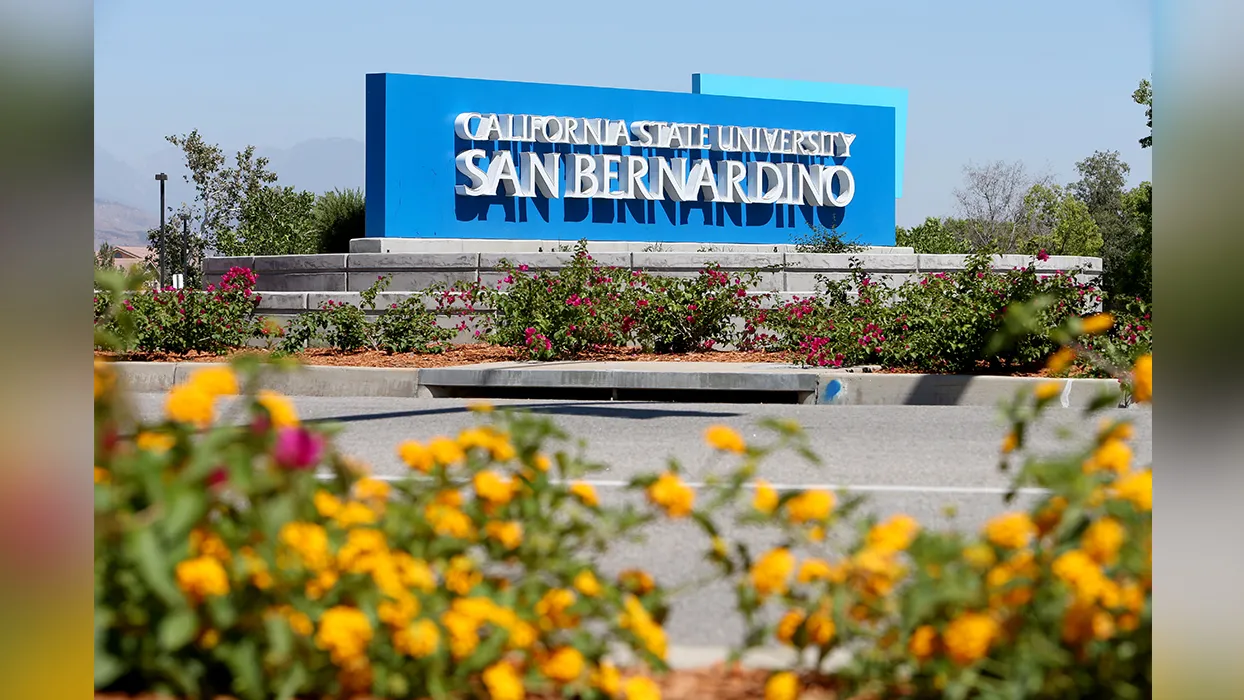Joe Gutierrez | Office of Strategic Communication | (909) 537-3007 | joeg@csusb.edu

Cal State San Bernardino will host its first-ever Assessment Celebration and Discovery Week: Showcasing DEI in Assessment at the Faculty Center of Excellence April 11-13.
The three-day event will highlight how assessment is critical in supporting students, which is done through evidence-informed decision-making at the department, unit, division and institutional levels.
Overarching outcomes for the week’s events include: celebrating assessment capability faculty fellows; demonstrating diversity, equity and inclusion (DEI) and promoting implementation through assessment leadership pipeline; showing the richness of projects in approaching DEI in assessment; and cultivating partnerships across areas of assessment practice in supporting the whole student through the full arc of learning.
Assessment Celebration and Discovery Week is sponsored by the university’s Faculty Development program in partnership with the Assessment Capability Collaborative.
The events include:
Tuesday, April 11, Kickoff: “Celebrating Assessment Capability Leadership Institute (ACLI) Inaugural Fellows”
· Noon-1:30 p.m., a hybrid live and Zoom event in the Faculty Center of Excellence, including lunch for all attendees.
· 1:30-2 p.m., Mixer (refreshments) with ACLI members, CLASS members (Committee on Learning and Student Success), and CLIP members (Faculty Communities of Learning, Inquiry, & Practice).
Fellowship Projects, Models for DEI in Assessment
Celebrating the 2021-22 inauguration of the Assessment Capability Fellows program, this event will highlight and follow up on the individual projects that emerged from the Institute: ACLI Fellows promote leadership in assessment through their ideas for the design, implementation and evaluation of sustainable processes and best practices pertaining to their specific departments and programs. As these projects will show, the ACLI Fellows encourage assessment capability by incorporating and disseminating assessment on behalf of learning while addressing complex and dynamic needs, including those pertaining to diversity, equity, and inclusion, among CSUSB’s academic communities and their stakeholders.
Individual presentations of Assessment Capability Fellows’ projects
· Mandy Rymal, associate professor of kinesiology, “Co-Curricular Activities in Kinesiology: Identifying Equity Gaps”
· Sarah Dunn, associate professor of kinesiology, “Leadership Pipeline: Not ‘a Training’ But a Building of an Ideal Assessment Culture”
· Karen Escalante, assistant professor of Teacher Education & Foundations, “Service Scholarship Model of Assessment”
Wednesday, April 12, A Celebration of Faculty Communities of Learning, Inquiry, & Practice (CLIP)
· Noon-1:30 p.m., a hybrid live and Zoom event in the Faculty Center of Excellence, including lunch for all attendees. Showcasing faculty ideas for identifying equity gaps in program level outcomes assessment; Demonstrating DEI and promoting implementation through our assessment leadership pipeline.
From June 6 to Aug. 12, members of CSUSB’s Faculty Communities of Learning, Inquiry, & Practice (CLIP) convened to develop their capability in program-level outcomes assessment with the overall goal of empowering and equipping selected faculty in each academic college. Members completed the CLIP program by submitting project deliverables, constituted of evidence (at least 2-3 components of direct and/or indirect measures) informing one program-level outcome (PLO) collected for the purpose of presenting to their program stakeholders who were thereby encouraged to reflect, make sense of, and recommend opportunities for improvement in the individual departments by fall 2022.
Among the components of measure, a plan for identifying any type of equity gap was required for every project submitted, defined as inequities found in the sources of evidence, the manner of collecting evidence, the analysis of evidence, the interpretation of evidence, and in the outcomes at the program level.
· Carmen Beck, assistant professor of education leadership and technology, Education of Teachers, “Assessment Plan for PLO 1: CAPE 1C: Implementing the Vision”
· Miriam Fernandez, assistant professor of English, “Assessment Plan, Improvements for Diversity, Equity, and Inclusion”
· Jessica Getman and Nicholas Bratcher, assistant professors of music, “Curriculum Assessment Plan: Note on Assessing Equity in PLO Implementation and the PLO Assessment Process”
· Daniel MacDonald, associate professor of economics, “Accounting for Equity”
Our panel will showcase members from each college who participated in CLIP, each will present an update on the outcome of their project deliverables, with particular interest in identifying equity gaps.
Thursday, April 13, DEI and the Full Arc of Learning: The Whole Student, A Conversation with Tom Long, director of faculty assessment, Jane Chin Davidson, DEI faculty fellow, Tiffany Bitting, director of Career Center, and Jasmine Bustillos, shared services coordinator
· Noon-1:30 p.m., a hybrid live and Zoom event in the Faculty Center of Excellence, including lunch for all attendees. Cultivating partnerships across areas of assessment practice in supporting the whole student through the full arc of learning, from the classroom to the workspace.
Assessment of academic degree programs at CSUSB provides an opportunity, not only to prepare for accreditation but also to think about the successes and needed improvements in meeting the university’s pedagogical goals. Through the function of assessment, this seminar explores different ideas for the review of the effectiveness of the university’s different programs and contexts of student learning, actively promoting the success of CSUSB students in the context of a DEI campus. Can we involve our students in the assessment process since they are the ones who can answer: “How did CSUSB perform in getting students ready for the next stage of their development from the classroom to the workplace? – how can CSUSB do better?” The goal is to identify those hindrances and opportunities for growth, evolution and/or improvement across the spectrum of student learning outcomes from academic degree programs to student employee work experiences.